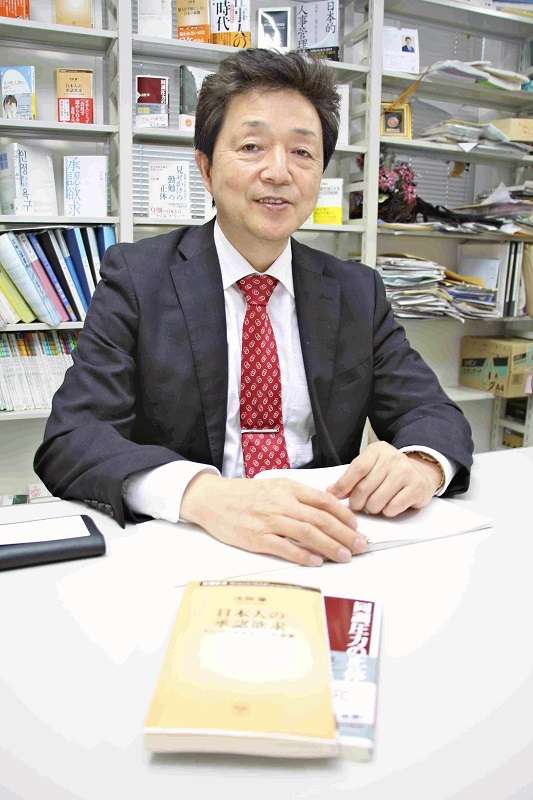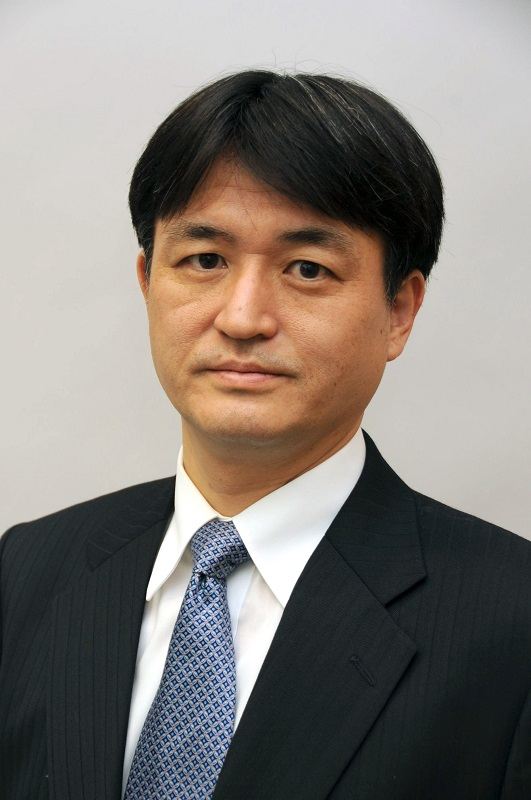
Prof. Hajime Ohta of Doshisha University
8:00 JST, August 27, 2022
At 79, Mick Jagger of the Rolling Stones is still on stage, belting out the legendary British rock band’s hit song “(I can’t get no) Satisfaction.” He could be expressing the plight of members of Japanese corporate society, who may not be satisfied with telework amid the COVID-19 pandemic. Prof. Hajime Ohta of Doshisha University in Kyoto examined the phenomenon in his recent book, “Nihonjin no Shonin-yokkyu” (Esteem needs of Japanese).
It is natural for people to want to be recognized by others for their performance, achievements and abilities. This is especially true in the workplace, where people spend most of their time during the day.
But what happens when there is no longer a need to go to work? Ohta, who specializes in organizational theory, conducted research on what happens to people psychologically when teleworking increases and in-office hours become limited.
He found an interesting pattern: When people’s need for approval is not met through telework and when the COVID-19 pandemic is in a lull, people want to get back to the office and resume work. This tendency reveals the difficulty of satisfying people’s esteem needs when teleworking is involved.
There are managers and regular employees in every company, and each has his or her own need for approval. As Ohta puts it: “In particular, managers are successful people in the office, and they tend to satisfy their desire for approval by ‘showing off’ their presence to their subordinates in the office. Their inability to do this due to the COVID-19 pandemic caused them to become frustrated and increased their willingness to return to regular office work once the situation improved.”
It is not only people at the managerial level who feel a lack of approval. Subordinates also feel the same. Many people want to be recognized for their work by their bosses, but teleworkers have fewer opportunities to see them in person, which reduces chances for recognition. For this reason, as the pandemic subsides, more and more people wish to return to their offices.
Ohta also focused on the “intangible rewards” of working in an office. He pointed out that when people go to work, they enjoy casual conversations with their colleagues, and have lunch together. The sense of fulfillment and social rewards derived from such simple interactions is impossible to overestimate, as the rise of telework has only reaffirmed.
Telework was at first seen as something fresh. There was no need to commute on overcrowded trains, no need to wear a suit and no sense of being watched, so workers could avoid or reduce stress. Young employees in particular, who had been hesitant to express their opinions, can now speak up and share their thoughts more openly and are eager to use their vacation days.
However, this atmosphere gradually changed as the COVID-19 pandemic became prolonged and people began to spend more time at home. Online drinking events such as “Zoom cocktails,” once a novel experience, declined as time went by. Companies themselves began to ask staffers to return to the office.
Why did this happen? Ohta said that it was because people have a strong sense of community, and the need for self-realization in life is frequently fulfilled in the workplace. Recognition at the workplace, in person, is so important that teleworking is not enough. According to Otha’s research, this trend is particularly strong in Japan because of its historical and ethical background, although people in other countries also have a need for recognition by their coworkers.
Teleworking has considerably changed the work style of Japanese society. As the pandemic continues, the number of teleworkers may rise again. But the desire for approval at the Japanese workplace will not disappear. Ohta also concluded that finding a third place to satisfy the need for approval, such as taking on a second job or pursuing special qualifications, will open new horizons in people’s lives.
Even so, workers’ need for approval may not be fully satisfied right away. Until then, Japanese workers may continue to shout in their minds, like Mick Jagger: “I can’t get no… That’s what I say.”
Political Pulse appears every Saturday.

Hiroyuki Nakamura
Nakamura is the editor of the Economic News Department of The Yomiuri Shimbun Osaka.
Top Articles in Editorial & Columns
-

Riku-Ryu Pair Wins Gold Medal: Their Strong Bond Leads to Major Comeback Victory
-

40 Million Foreign Visitors to Japan: Urgent Measures Should Be Implemented to Tackle Overtourism
-

China Provoked Takaichi into Risky Move of Dissolving House of Representatives, But It’s a Gamble She Just Might Win
-

University of Tokyo Professor Arrested: Serious Lack of Ethical Sense, Failure of Institutional Governance
-

Policy Measures on Foreign Nationals: How Should Stricter Regulations and Coexistence Be Balanced?
JN ACCESS RANKING
-

Japan PM Takaichi’s Cabinet Resigns en Masse
-

Japan Institute to Use Domestic Commercial Optical Lattice Clock to Set Japan Standard Time
-

Israeli Ambassador to Japan Speaks about Japan’s Role in the Reconstruction of Gaza
-

Man Infected with Measles Reportedly Dined at Restaurant in Tokyo Station
-

Videos Plagiarized, Reposted with False Subtitles Claiming ‘Ryukyu Belongs to China’; Anti-China False Information Also Posted in Japan






















